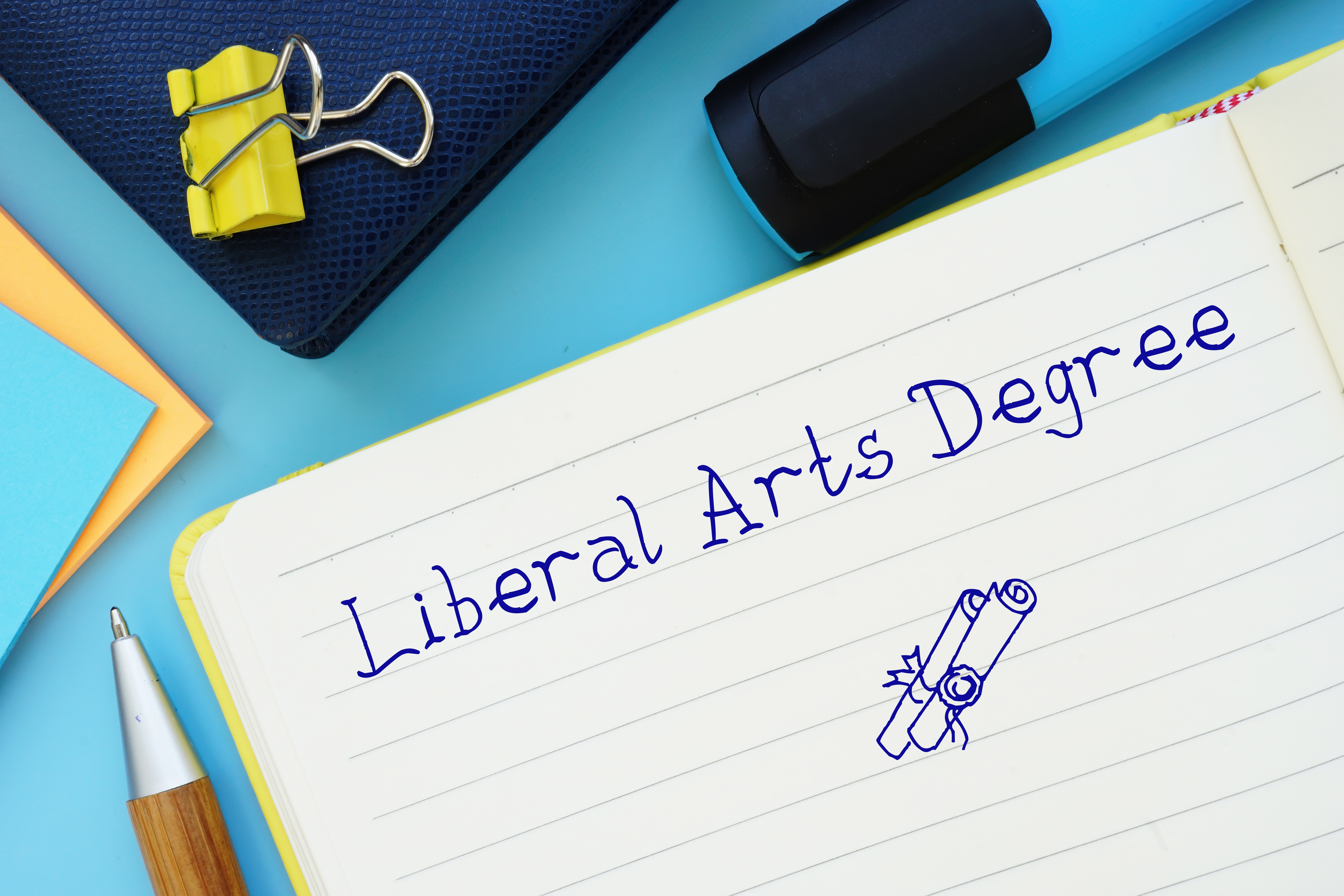Liberal arts education, which has gained significant attention in recent years, refers to a holistic approach to learning that emphasizes a broad-based curriculum, critical thinking, effective communication, and problem-solving skills. The approach is interdisciplinary, encouraging students to make connections between different fields of study and promoting intellectual curiosity and lifelong learning. This blog post will delve into the definition, history, scope, and future of liberal arts education in India.
What is a Liberal Arts Education?
Liberal arts education is a philosophical approach that focuses on developing well-rounded individuals capable of thinking critically and creatively. It emphasizes the importance of a broad-based education that goes beyond mere specialization and fosters a deep understanding of various disciplines. The aim is to create individuals who are knowledgeable in their chosen field and possess a wide range of skills that can be applied across different domains.
To define liberal arts education, it is the cultivation of a robust intellectual life through the study of sciences, arts, humanities, and social sciences. This educational philosophy prepares students not just for employment, but for a life of civic duty and personal fulfillment.
History of Liberal Arts Education
The history of liberal arts education can be traced back to ancient Greece and Rome, where it was believed that a well-rounded education was essential for a free individual to participate in civic life. The concept evolved over time, and during the Middle Ages, it became associated with the trivium (grammar, rhetoric, and logic) and quadrivium (arithmetic, geometry, music, and astronomy). The idea was to provide students with a solid foundation in these subjects, which would then enable them to pursue higher studies in various fields.
In India, liberal arts education has a long history, dating back to the Vedic period. The ancient Indian education system, known as the Gurukula system, emphasized the importance of a holistic education that included subjects such as philosophy, literature, and science. However, with the advent of colonialism, the British education system was introduced in India, and it focused primarily on producing professionals who could serve the colonial administration.
Today, liberal arts in India is experiencing a renaissance, as educational institutions are rediscovering the value of a comprehensive education system.
What is liberal arts in India now refers to an educational approach that integrates diverse subject areas, promoting a well-rounded development of individuals who are equipped to navigate the complexities of the modern world. This resurgence of interest in the liberal arts is a testament to the enduring relevance of this educational philosophy.
Evolution of Liberal Arts Education in India
In recent times, there has been a renewed interest in liberal arts education in India. Many prestigious institutions have started to incorporate liberal arts into their curriculum, recognizing the value it brings to the modern educational landscape. The shift towards interdisciplinary learning is driven by the realization that the traditional system of education, which focuses solely on specialization, does not adequately prepare students for the complexities of the 21st century.
Scope of Liberal Arts Education in India
The scope of liberal arts in India is expanding rapidly. With the country’s dynamic economy and diverse culture, there is a growing demand for graduates who are not only experts in their fields but also possess a broad knowledge base and critical thinking skills. Liberal arts education prepares students to navigate the complexities of a rapidly changing world, where technological advancements and globalization are creating new challenges every day.
Advantages/Benefits of Liberal Arts Education
When asking about what is the purpose of a liberal arts education, then the same is to equip students with a broad range of knowledge and skills that prepare them for various life challenges and career paths. It’s about nurturing a well-rounded individual with the capacity to think critically, communicate effectively, and contribute meaningfully to society.
Understanding the importance of liberal arts education is crucial in today’s fast-paced and interconnected world. It provides a foundation for lifelong learning and adaptability, which are essential in an era where change is the only constant.
There are several advantages of pursuing a liberal arts education. Here are some of the most significant benefits:
- Well-Rounded Personality: Liberal arts education helps students develop a well-rounded personality, which makes them more attractive to potential employers. It exposes them to various subjects, helping them develop a broader perspective on life.
- Employability: Graduates with a liberal arts degree are highly sought after by employers because they possess a unique combination of skills, including critical thinking, problem-solving, communication, and teamwork. These skills are highly valued in any professional setting.
- Adaptability: Liberal arts education prepares students for a rapidly changing job market. With automation and artificial intelligence becoming increasingly prevalent, adaptability is key to success. A liberal arts education enables students to pivot quickly and easily, making them ideal candidates for jobs that may not even exist yet.
- Creativity: Interdisciplinary learning fostered by liberal arts education encourages creativity and innovation. Students learn to think outside the box and come up with novel solutions to complex problems.
- Leadership Skills: Liberal arts education develops leadership skills, which are essential for success in any field. By exposing students to various subjects, they gain a deeper understanding of the world around them, enabling them to make informed decisions and lead effectively.
Future of Liberal Arts Education
The future of liberal arts education looks promising, especially as the world becomes more interconnected and complex. As technology continues to advance and automate many routine tasks, the demand for skilled professionals who can think critically, communicate effectively, and solve complex problems is likely to increase. Liberal arts education, with its emphasis on broad-based learning and interdisciplinary approaches, is well-suited to meet this demand.
With this, the importance of liberal arts education in the 21st century cannot be overstated; it prepares students not just for their first job, but for a multifaceted career journey and a fulfilling life.
Furthermore, the liberal arts offer a unique perspective on the world, allowing students to understand the human experience and the social, political, and cultural contexts in which they live. This perspective can help students develop empathy, tolerance, and ethical values, which are essential for building a better future for all.
The liberal arts education in India is gaining momentum, with more institutions recognizing the need to develop well-rounded graduates who can navigate the complexities of a globalized society. This educational approach is crucial for cultivating a generation of leaders and thinkers who can contribute to the nation’s growth and global presence.
In evaluating the educational landscape, one must also consider the pros and cons of liberal arts education to appreciate its role in shaping versatile and critical thinkers. In addition, liberal arts education can help bridge the gap between different cultures and communities, fostering greater understanding and cooperation among people from diverse backgrounds. This is particularly important in today’s world, where globalization and technological advancements have brought people closer together, but also created new challenges and conflicts.
To fully realize the potential of liberal arts education, educators and policymakers must work together to create a supportive environment that fosters interdisciplinary learning, creativity, and critical thinking. This may involve revising curricula to include more project-based learning, collaborative projects, and experiential learning opportunities, as well as providing students with access to state-of-the-art facilities and resources.
Moreover, the liberal arts should not be seen as a luxury or an afterthought, but rather as an integral part of a well-rounded education that prepares students for successful careers and fulfilling lives. To achieve this, schools and universities must prioritize the development of strong liberal arts programs, and governments must invest in initiatives that promote the value of liberal arts education.
One might ask, ‘What’s a liberal arts education good for?’ The answer lies in its ability to produce citizens who are not only knowledgeable but also capable of contributing to the betterment of society. A classical liberal arts education provides the intellectual foundation necessary for personal growth, civic engagement, and professional success, making it an invaluable asset in today’s world.
Ultimately, the future of liberal arts education depends on our willingness to embrace its principles and harness its power to shape a better future for ourselves and future generations. By valuing diversity, inclusivity, creativity, and critical thinking, we can build a society that is more just, equitable, and prosperous for all.
OP Jindal Global University- Jindal School of Liberal Arts & Humanities
Shape Your Future with a Liberal Arts Education. Join O.P. Jindal Global University (JGU) and the Jindal School of Liberal Arts & Humanities (JSLH) and start a transformative journey of intellectual exploration and personal growth.


